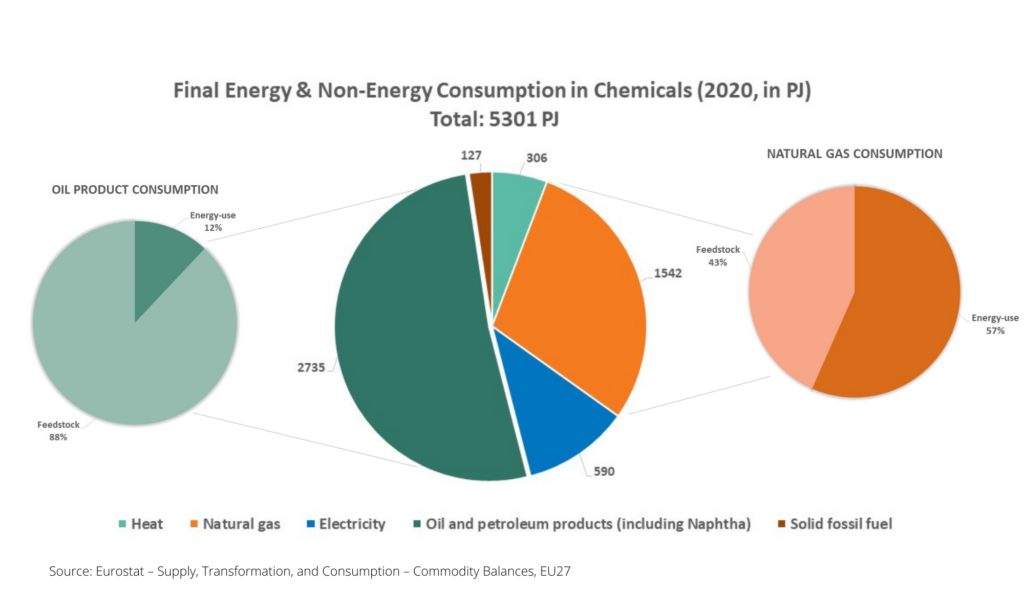Welcoming the REPowerEU Plan
Background
The war in Ukraine endangers safety and prosperity of the whole European continent, and we urgently call for an end to violence. This war has also pushed to the fore the EU’s reliance on Russian energy imports.
As an energy intensive sector relying on energy supplies from outside of the EU, including Russia, we support the EU plans to bolster energy security and accelerate the clean energy transition. Cefic agrees that diversifying energy supplies, accelerating the deployment of renewable energies and improving energy savings to promote energy security are even more important in the present crisis. Therefore, we welcome the outline presented in the REPowerEU Plan.
Challenges and opportunities
In the short- to medium term, the chemical sector remains uniquely dependent on secure and stable supplies of oil products and natural gas, which are used both for feedstock and energy. Moreover, supply disruptions of any energy carrier of the chemical sector would have a cascading effect across industries, as the chemical sector is deeply integrated with many of the EU’s value chains.

Therefore, we support a dual strategy, which seeks to increase the renewable energy generation in the EU whilst at the same time building international energy partnerships.
Other opportunities may be opened if Europe manages to develop and deploy a sustainable carbon-cycles regulatory framework, whereby carbon from virgin fossil-based feedstock is progressively replaced by carbon resulting from chemical recycling, carbon capture and use of industrial emissions, and bio-based feedstock.
Finally, since the EU chemical industry is projected to be one of the EU industrial champions in the use of clean hydrogen, we see the Hydrogen Accelerator, with sufficiently flexible production criteria, as one of crucial instruments to help develop this new market.
Cefic’s position
Moving forward in implementing measures identified in the REPowerEU plan, Cefic has developed a quantitative analysis of the energy needs in the chemical industry and a set of short, medium and long-term recommendations to design an effective policy and sanctions response to the present energy crisis.
Download the Cefic views on REPower EU.
Short term recommendations
- Step-up Crisis Monitoring in a Responsive & Transparent Way : Cefic recommends that the EU sets-up a task force to monitor the cascading impact of EU sanctions on international trade flows of energy products
- Prepare Immediate Supporting Measures to Mitigate the Crisis’ Effects: Cefic recommends establishing a rapid feedback loop between the EU Commissions and affected businesses on the impacts of new measures on the EU competitiveness, as well as fostering efficient use of energy, incentivising fuel-switching and stepping up international negotiations to diversify energy supplies. Finally, Cefic recommends that European institutions and national governments consider and address the impact of growing energy and feedstock prices on the competitiveness of the EU manufacturing sector.
Medium term recommendations
Develop a Medium-term Strategy to Reduce Dependencies on Russian Energy Supplies: Cefic recognizes that the diversification of global energy supplies is key, and it should be supported through a build-up of necessary import infrastructure, such as LNG regasification capacity and expansion of intra-EU pipelines network.
Long term recommendations
Anticipate the Crisis’ Effect on the EU’s Longer-term Climate Ambitions: Cefic recommends the deployment of an industrial strategy for the uptake of low-carbon, renewable energy supplies and energy efficiency measures. Moreover, predictable regulatory framework, as well as streamlining of permitting procedures and reduction of administrative bottlenecks are needed to enable long-term investment lifecycles.
Supporting documents